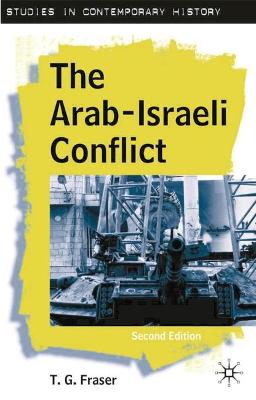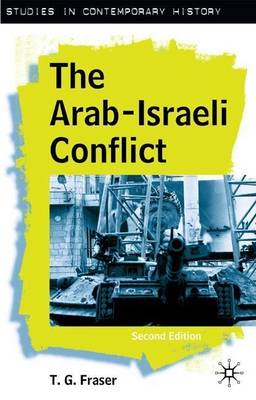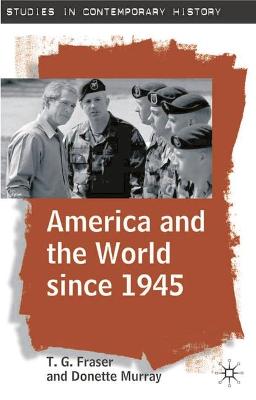Studies in Contemporary History
3 total works
Since 1945, the struggle between Arab and Jew over the same piece of land has been one of the world's most entrenched and bloody conflicts repeatedly defying attempts at a resolution. The second edition of this successful textbook, sets out the basic arguments on each side, and traces their evolution. T. G. Fraser examines the origins and consequences of the Arab Israeli wars of 1948 9, 1956, 1967, 1973 and 1982, as well as the two Intifadas. There is particular focus on the various peace plans, including the Camp David Accords, the Reagan Plan, the Oslo process, Clinton's diplomacy and the American Roadmap, and a new chapter takes the story from 1994 to the present day.
Arab-Israeli Conflict, The. Studies in Contemporary History.
by T. G. Fraser
Published 1 January 2004
American foreign policy is fundamental to any understanding of how the post-war world has been shaped. This insightful and wide-ranging book analyses the policies pursued by each presidency from that of Harry Truman to George W. Bush, and reviews the far-reaching consequences of these actions. Taking into account the most recent research and scholarly interpretations, T. G. Fraser and Donette Murray examine the priorities of each successive administration and how these have had to adapt under the pressure of events on a global scale.
America and the World since 1945
- focuses on the origins and course of the Cold War
- explains major crises and developments, such as the Truman Doctrine, the nature of containment, the Cuban Missile Crisis, Berlin, arms control and detente
- features analysis of how America became involved in armed conflict, as in Korea, the Gulf, the Balkans and Vietnam
- looks at American action in relation to the Arab-Israeli conflict, as well as interventions in Latin America and Africa
- traces the evolution of policy towards China
- studies conventional diplomacy alongside the use of intelligence and covert activity
- examines the dynamics of the post-Cold War world
Clear in its approach, this book is essential reading for anyone with an interest in America's relationship with the rest of the world from the end of the Second World War up to the aftermath of the attacks on the World Trade Center and the Pentagon in September 2001.
America and the World since 1945
- focuses on the origins and course of the Cold War
- explains major crises and developments, such as the Truman Doctrine, the nature of containment, the Cuban Missile Crisis, Berlin, arms control and detente
- features analysis of how America became involved in armed conflict, as in Korea, the Gulf, the Balkans and Vietnam
- looks at American action in relation to the Arab-Israeli conflict, as well as interventions in Latin America and Africa
- traces the evolution of policy towards China
- studies conventional diplomacy alongside the use of intelligence and covert activity
- examines the dynamics of the post-Cold War world
Clear in its approach, this book is essential reading for anyone with an interest in America's relationship with the rest of the world from the end of the Second World War up to the aftermath of the attacks on the World Trade Center and the Pentagon in September 2001.


